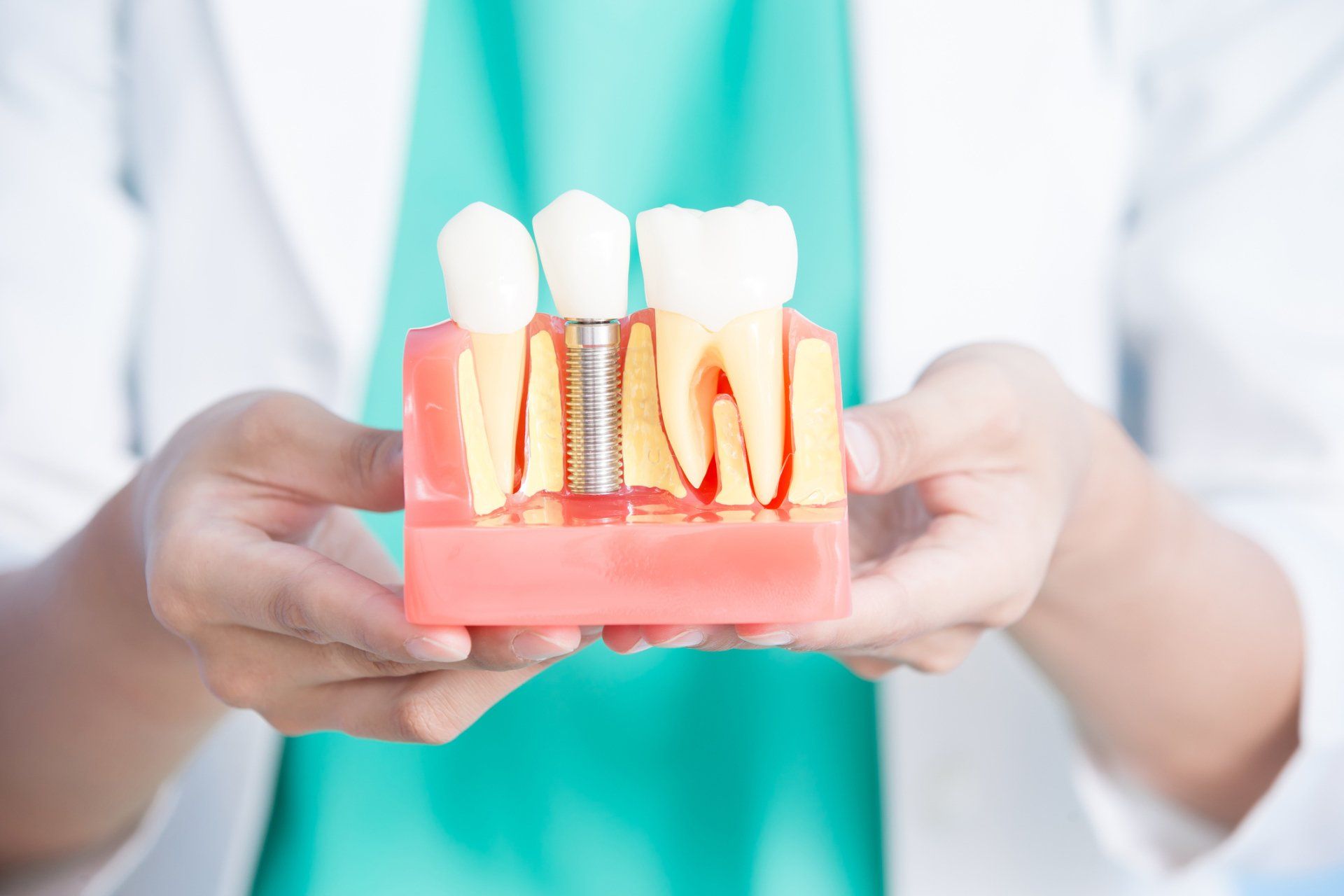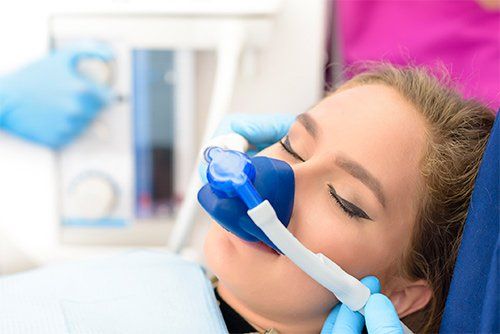New to Wearing Dentures? How to Treat Stomatitis
- By Admin
- •
- 03 Jan, 2020
- •

With good care, your dentures can last you about four to six years before you'll need a replacement. However, if you don't care for them properly, you may need to get new dentures sooner. Besides premature aging, dentures that aren't taken care of properly can leave you open to certain inflammatory conditions, like stomatitis. Read on to learn more about this condition and how to treat it.
What Is Stomatitis and What Are the Symptoms?
Denture-related stomatitis - also known as denture sore mouth - is a fungal infection caused by a yeast called candida. Under normal bodily conditions, candida exists in your mouth and throat at balanced levels. However, when there is an imbalance or a weakened immune response, then the yeast can multiply to unhealthy levels. Some symptoms of stomatitis include:
- Swollen or red gums beneath dentures
- Bumps or blisters on the roof of the mouth, throat, lips, gums or tongue.
- Soreness or pain when eating
- Cracks and inflammation around corners of the mouth
When you don't care for your dentures the way you should, you're more likely to develop stomatitis.
What Causes It?
Candida easily develops when dentures aren't cleaned properly. It is also more common in people who sleep with their dentures in since the appliances can dry out, making it easier for fungal infections to develop.
While stomatitis can occur underneath partials and both upper and lower dentures, it is more commonly seen in patients with complete upper dentures.
If you have a diet high in sugars and carbs and poor oral hygiene, you raise your risk of the condition. Stomatitis is also more common in people with underlying diseases, such as HIV or diabetes. If you suffer from dry mouth (xerostomia) your risk of stomatitis also increases.
Lastly, certain antibiotics can increase your risk of stomatitis since these medications reduce the number of good bacteria in your body.
How Is It Diagnosed?
Your dentist or denturist may be able to diagnose stomatitis just by looking at the affected tissues beneath your dentures. The dental team may also swab the denture or your cheeks to test for the presence of candida.
How Can You Treat Stomatitis?
The good news is that stomatitis is easily treatable and not a life-threatening condition. Your dentist may prescribe an antifungal medication to treat the condition. He or she may also prescribe an antimicrobial mouthwash, like chlorhexidine.
You need to follow your denturist's directions for cleaning your dentures properly as well. Toothpaste is not an adequate solution for cleaning the dentures and can actually damage them. As a rule, you need to brush and soak your dentures every day with a denture-cleaning solution. If dentures aren't cleaned and disinfected properly, then the infection can persist.
Besides cleaning your dentures properly, make sure that you are practicing good oral hygiene. Brush your gums, tongue, and remaining teeth with toothpaste before inserting dentures. By gently brushing your gums, you'll be able to encourage good circulation in these tissues.
Unless your dentist needs you to wear your dentures at night (e.g. after multiple extractions when tissues need to heal), you should be taking the appliances out at night and soaking them in a cleaning solution.
If you need to take antibiotics for another medical condition, you should include a probiotic supplement or eat yogurt, which contains probiotics, so that oral candida doesn't become imbalanced.
Keep these tips in mind and you'll lower your risk of stomatitis and extend the life of your dentures. Contact us at Premier Dentures and Implants for more information on getting new dentures or how to take care of your current ones.











